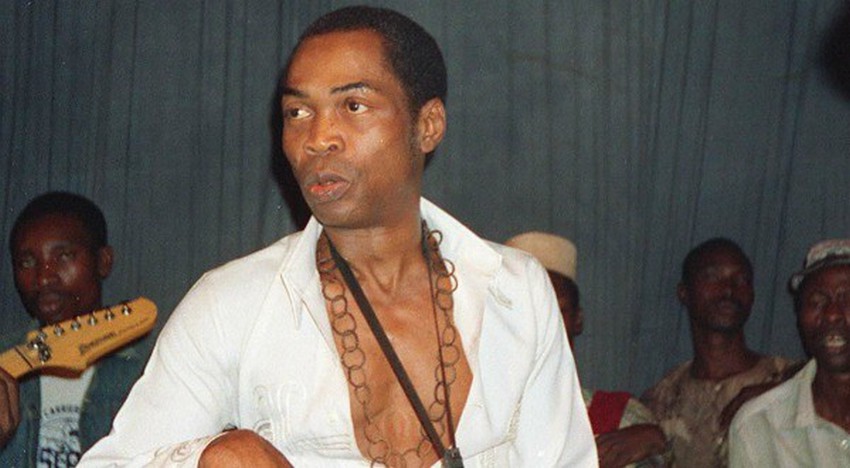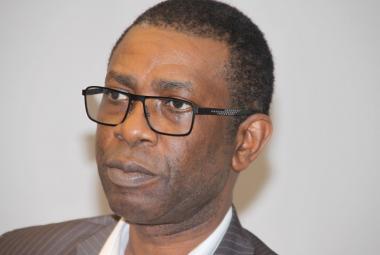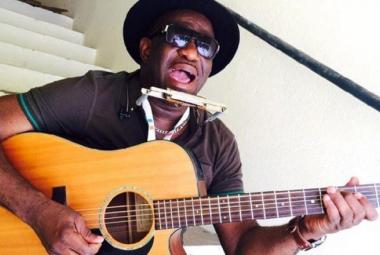Many years after his death, Fela, the founding father of Afrobeat, remains an outstanding and unique artist-musician. A phenomenon born in Nigeria in this Africa so rich and diverse in its arts, but which will struggle to give birth to someone who can if not be like him at least look like him in many ways.
In Dis Fela Sef The legend(s) untold, Benson Idonije, who was the Manager of the King of Afrobeat writes: “Fela and I met sometime in 1963. Shortly after his returned from his studies in the UK, his famous mother, Mrs. Funmilayo Ransome-Kuti, brought him to meet me in the studio when I was presenting NBC Jazz Club one Thursday night. We became friends and formed a Jazz group - The Fela Ransome-Kuti Quintet - which I managed in 1963. And when we moved from Jazz to Highlife in 1965, I also recruited musicians for the Koola Lobitos ".
Long after his death in the early morning of August 2, 1997, we have not yet finished talking about this genius musician, with multiple talents, but just as extravagant as he is subversive. His real civil name is Olufela Olusegun Oludotun Ransome-Kuti. And we usually say Fela Anikulapo Kuti or Fela Kuti.
He will have lived 58 years only one would say. But intensely to write his Legend. A personal story that posterity will find difficult to forget, despite its flowering of escapades. Before devoting himself definitively to music, Fela first studied in the best schools in the United Kingdom. And English, he could speak it with his Oxfordian accent or with that of the local pidgin that he loved so much. So it was according to the client he had in front of him.
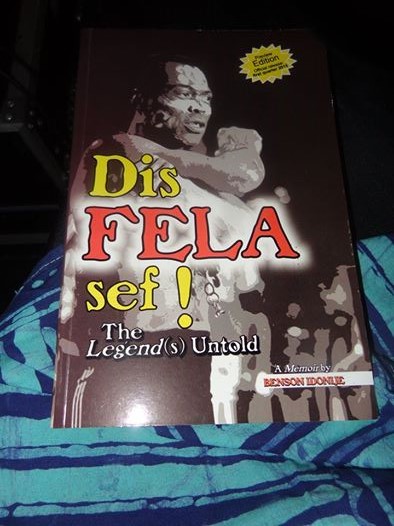 Afrobeat and Satire Made in “Kalakuta Republic”
Afrobeat and Satire Made in “Kalakuta Republic”
Fela believed that music shouldn't just be for entertainment. Because it had immense power in society and in particular over young people, it had to be used to support the necessary transformations in society. "Music is the weapon of the future", he often said. A weapon of mass deterrence or mass change, so to speak. Everyone has their own conception of their commitment as an artist. We will never be unanimous on this. Still, Fela was not an artist to keep quiet, nor to not use his music to defend the causes that were close to his heart.
Like any genius musician, Fela undertook musical research and experimentation and arrived at a clever mix of Yoruba rhythms, free jazz, soul or funk to finally obtain what he called Afrobeat.
As Benson Idonije, who was the Manager of the King of Afrobeat, declares, he braced himself on a West African heritage of Highlife music around which several African-American rhythms were skillfully orchestrated on a background of brass and percussion. Gradually, all these experiences of fusion gave birth to more and more complex and original symphonic constructions.
The Afrika Shrine, Fela's Night-Club in Lagos, became a veritable laboratory before becoming his famous "Republic of Kalakuta". Fela gives shows there that could be described as “politico-musical shows”. He misses no opportunity to convey a message as a good communicator. So much he is aware of the fact that between two well-paced and frenzied pieces with his musicians and dancers, you can have a good listen. So, his spectacular musical performances are accompanied by political harangues. Every Fela show is an unforgettable experience. In his songs, he never ceased to make fun, for example, of the acronym of the Nigerian electricity company “NEPA” (National electric power authority) which he called: “Never expect power again”. But he could also leave on lyrical flights, as for example with this song which says in English: "Water no get enemy". In other words: “water has no enemy”. As if to say that water is elusive, because no one can grasp it with both hands. Or many others: "Why Black Man Dey Suffer", Zombie, Opposite People, V.I.P. (Vagabonds in Power), Army Arrangement, Teacher Don't Teach Me Nonsense, etc.
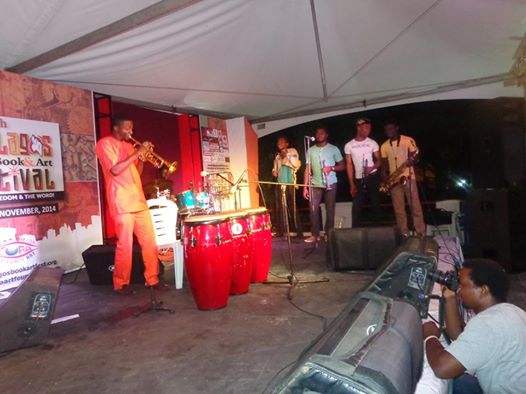
The legend(s) untold", by Benson Idonije, who was the Manager of the King of
Afrobeat. (Photo : Marcus Boni Teiga)
Fela, his Mother's Son
She has been at the forefront of several fights in Nigeria. By creating the movement for women's rights in the 1950s, which she led together with another of her caliber, Elizabeth Adekogbe. It was also Fela's mother who created the Abeokuta Women's Union from which she hails in Ogun State. And, then, with the complicity of another activist from the East of the country named Margaret Ekpo, they will unite to found the Union of Nigerian Women, and respectively assume the positions of president and secretary within this organization. This means that Fela's mother inspired him a lot.
Fela always had the convictions of her mother, an early Feminist in Nigeria. In addition to the certainty that life is an everyday struggle, he has forged a character that only someone of his genius and audacity could have. A colorful character, willingly eccentric and provocative, Fela has always opposed those who have strength and who use it to dominate and subjugate others. His positions on the socio-political situation of his country speak for him.
Neocolonialism, the dictatorship of the military, the corruption of the elites, are among other themes, those which inspired and guided him in his diatribes against the establishment. It should not be forgotten that his mother, Funmilayo Ransome-Kuti, was not only a Feminist but that she also fought against British colonialism.
Nourished with the various fights of his mother, Fela made his own the fights for the cause of the Blacks, in particular the fight of Malcolm X in the United States. But his studies in London also opened his mind to the pan-Africanism of Kwame Nkrumah, Cheikh Anta Diop, and many others. And, in the particular style which is his, Fela Anikulapo Kuti, will be the standard bearer of all his fights. So many battles that will be accompanied by their share of misadventures and setbacks as evidenced by his multiple arrests and incarcerations for various reasons, but mainly subversion. Fela will have been his mother's worthy son, so to speak.
Democracy or Public order disturbance
Democracy was one of Fela's catchwords. He knew the value of it for having lived abroad, in countries where this exercise is certainly restrictive, but absolutely essential for a society to be fairer. As Fela was fundamentally against injustice, he had made it his hobbyhorse. What Fela called, not without humour, the "democrazy" or "false democracy" behind which many African heads of state hide, this kind of madness against the sharing of power, was the exact opposite of what he called with all his wishes. His fierce opposition to the dictatorial and bloodthirsty power of General Sani Abacha speaks volumes.
Beyond his country of origin, the committed artist-musician has always taken a very critical look at democracy as it is exercised in Africa. Whether it is the governance of countries by the military or by civilians, he has never ceased to point out the propensity of African elites to enslave their populations and to illicitly enrich themselves through their detriment. This must be seen as one of the reasons why he had arrogated himself as a troublemaker as long as the rulers behave in this way.
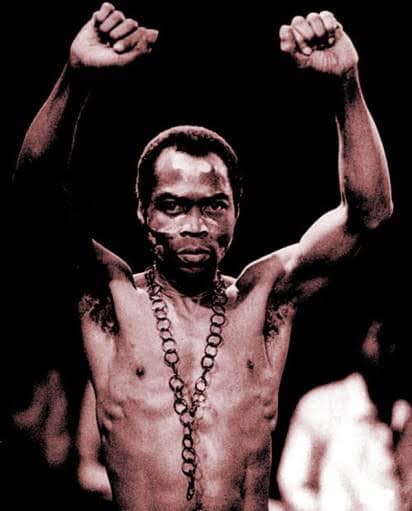
The “Kalakuta Republic”
Fela had his own Republic all to himself: the “Republic of Kalakuta”. Didn't he also call himself "Black President", one way or another of saying that he is an "Alternative President". And that in his “Republic of Kalakuta” he could afford what he could not in the Republic of others. What characterized Fela the most was Freedom. And Freedom in every sense of the word. In a country where above all it is Freedom of thought that posed a problem with the Dictatorship of Military Powers in Nigeria.
Fela performed where he felt like performing at the Kalakuta Republic. It was like a self-governing Principality within the Federal Republic of Nigeria. Where the “Black President” could make his law. Regardless of who was in the audience. Lagos, The French philosopher and writer, Bernard-Henri Levy, experienced this. He who suffered the presumptuousness of Fela who did not bother to make him wait for several hours.
The libertarian sometimes indulged in rituals of which he alone held the secret. Some of his guests even mention the generosity of the Great Fela. And this could come close to resembling those ancient practices in certain ancient African tribes of proposing women for the night. He could receive guests, in the company of his wives, while smoking his weed and having his torso caressed, which he liked to expose naked, without batting an eyelid.
His home in Lagos had become the "Republic of Kalakuta". There he lived with his “thirty wives”.
"The most important African of the 20th century"
The “King of Afrobeat” or the “Father of Afrobeat” or the “Blac President”, Fela Anikulapo Kuti, will remain an exceptional icon in the field of music in Africa and in the world. Despite his extravagant social behavior and his escapades. It is not by chance or complacency that the New York Times elected him “the most important African of the 20th century” in the cultural field. In the United States, more precisely in New York, Fela!, a musical comedy has even already been dedicated to him. With the many hats he did not hesitate to wear, Fela achieved one thing: to make his voice the voice of the voiceless. Even beyond his exceptional talents as an artist-musician. If his life was rather stormy, his fights, for their part, still remain the fights of all the Africans of the continent who dream of seeing real democracies settle and swarm here and there to drive out everywhere the "democrazy" or "false democracy" which he fought with all his might and at his own risk.
Fela was a free man, who lived free, as he saw fit, making fun of the ups and downs of life, the conventions and the princes who ruled in Africa as elsewhere in the world. And it is an understatement to say that he had chosen to piss off the world, in particular its leaders. Fela has always had a hard tooth against former President Olusegun Obasanjo of Nigeria, a native of Abeokuta like his parents, and whom he accused until his death of having caused the death of his mother, by having her defenestrated. However, his mother was a great Yoruba poetess, his great inspiration. Just like the Yoruba culture to which he attached inestimable value.
By Serge Félix N'Piénikoua



